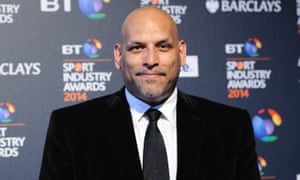Gregg Popovich began with an apology. “I don’t think my voice is that important,” replied the San Antonio Spurs coach when asked his views on the US election. But then, over the course of six impassioned minutes, one of the greatest coaches in the NBA history sank the verbal equivalent of multiple three-pointers from mid-court. “I’m sick to my stomach,” he sighed, his voice now quivering with anger and a deepening anguish. “Not because the Republicans won but the disgusting tenor and tone and all of the comments that have been xenophobic, homophobic, racist and misogynistic.”
The beat reporter tried to change tack. “I’m not done,” Popovich replied, politely but firmly. And he wasn’t. He attacked Trump supporters, pondered how “disenfranchised” women, gay and disabled people, Muslims and other minorities would be feeling, called Trump an “eighth-grade bully” and expressed his fears for America’s future in historical-lyrical terms. “My final conclusion is, my big fear is – we are Rome.”
Popovich was not a lone voice. Many NBA players also tweeted their disquiet, while the Detroit Pistons coach, Stan Van Gundy, called Trump “openly and brazenly racist and misogynistic” before warning, “We have just thrown a good part of our population under the bus.”
Imagine Sir Alex Ferguson clinically lacerating Nigel Farage, Michael Gove and Boris Johnson for their brazen Brexit whoppers. Or Wayne Rooney talking bluntly about austerity. Only one can’t. It is true that Robbie Fowler and Steve McManaman contributed to the Liverpool dockers’ fighting fund. And yes, Andy Murray publicly backed Scottish independence and Greg Rutherford nearly pulled out of the BBC’s Sports Personality of the Year over Tyson Fury’s homophobic comments. But on too many big issues – austerity, Brexit, stop-and-search powers, the NHS and immigration – there is mostly silence from British sports stars.
One reason Gary Lineker has stood out for sticking up for the disadvantaged in the face of hostile abuse from the Sun, Daily Mail and other trolls recently is because his public stance is rare.
Why are others not joining in? Partly it is the obvious: nobody wants to receive 24/7 abuse on social media for telling uncomfortable truths. Some athletes may also lack confidence or education. But when I spoke to the former NBA star John Amaechi he cited another factor: the easy pact between athletes and their clubs and partners, to be as banal and vanilla as possible off the field. “The truth is that stars have realised that it’s the best way to maximise your earnings,” Amaechi said. “As Michael Jordan put it – perhaps apocryphally – ‘Republicans buy shoes too.’”

Yet in America the times are changing. Athletes – particularly from the black community – are speaking out about the state of the union. In 2014 LeBron James, Kobe Bryant and Derrick Rose wore T-shirts reading “I can’t breathe” to protest about the death of Eric Garner at the hands of the NYPD, while the LA Clippers turned their shirts inside out to hide the logo to protest against their then-owner Donald Sterling’s racist comments. More recently the San Francisco 49ers quarterback Colin Kaepernick has refused to gaze dewy-eyed at the American flag during the national anthem, while the New York Knicks star Carmelo Anthony has gone as far to suggest the whole US system is “broken”.
Amaechi, who became the first NBA player to come out in 2007 and is now a respected psychologist, is more qualified than most to speculate on why this is happening. In his view leading black athletes in the US have realised that huge personal privilege cannot protect them and their families, so what must it be like for those on the breadline.
Something else that Amaechi said also struck home: powerful people – be it in politics, sport or business – are looked up to by large parts of society. And that makes sporting giants de facto on the front line of setting the cultural tone – either by their words and deeds or their inaction. Amaechi practises what he preaches: last week he appeared in parliament, revealing he was in contact with gay Premier League footballers who were afraid to come out because of a hostile atmosphere at their clubs and noting that he had not heard a Premier League manager speak out about homophobia.
“The world around us has cracks in it and we have athletes with the power to address those fractures,” he said. “We know this because, when we put our face on sugar water or our name to shoes, people buy those goods. We have that kind of power. We can easily wield it in other ways.”
Amaechi decided to become more of an activist after realising that “for 25 years I put a bloody ball in a hole” and that “essentially as a black person I was a minstrel, and that wasn’t good enough for me”. Another moment of clarity arrived when he signed an autograph and shook the hand of a young lad while he was a nobody at the Cleveland Cavaliers and saw him “shake like he had been touched by God”.
“From that moment I realised that having a positive impact on others is among the most important things an athlete can do,” he added. There is a lesson there for others, provided they hear it – and are brave enough to apply it.



